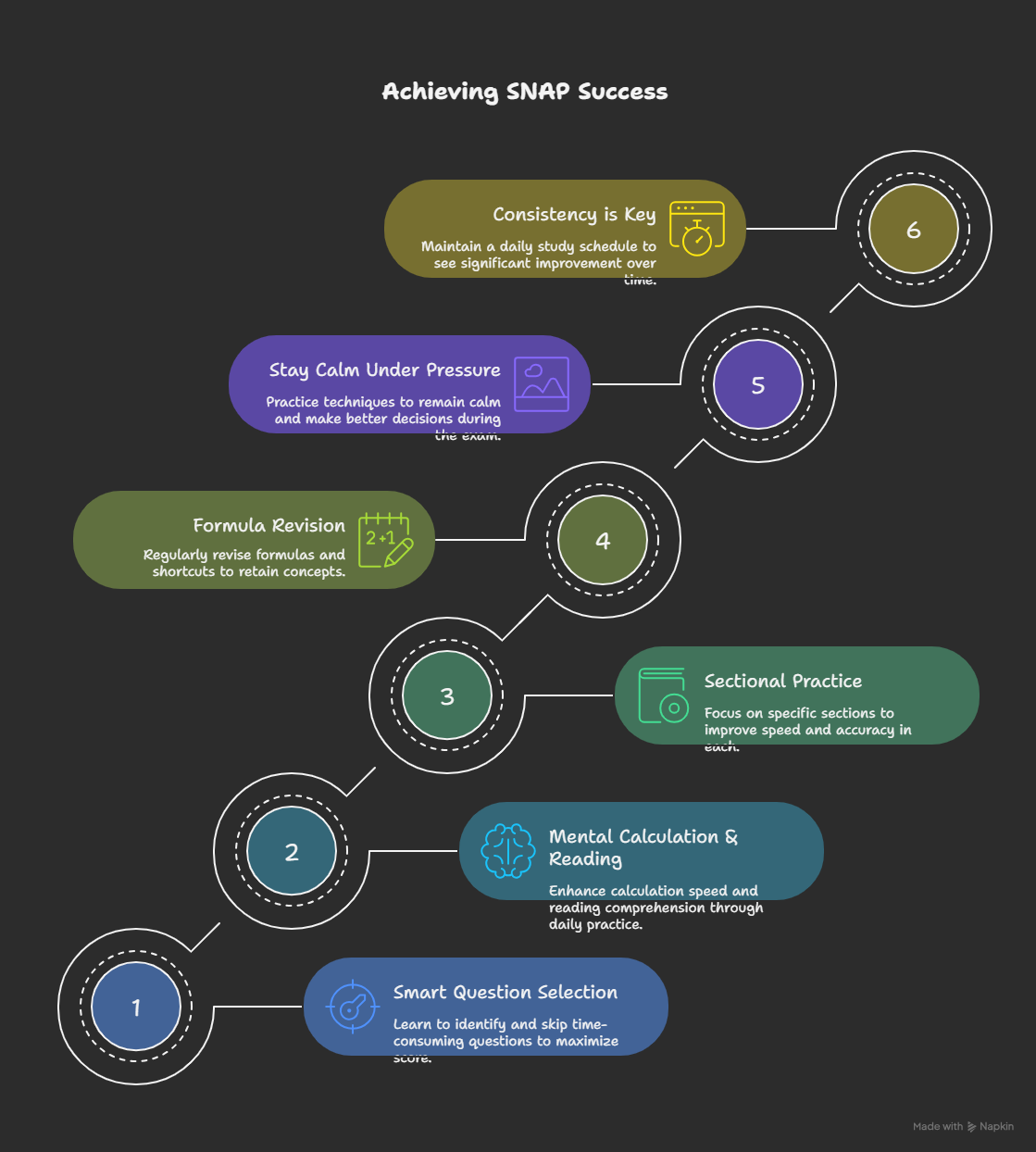Body

Preparing for SNAP requires a balance between speed and accuracy. With only 60 minutes to solve 60 questions, even a small mistake or delay can impact your overall score. Here are some proven strategies to help you perform better:
1. Understand the Exam Structure Thoroughly
SNAP has three key sections: General English, Analytical and Logical Reasoning, and Quantitative, Data Interpretation, and Data Sufficiency. Since all questions carry equal marks and there’s negative marking for wrong answers, a well-planned approach is essential.
2. Build Conceptual Clarity First
Before chasing speed, make sure your fundamentals are clear. Whether it's grammar rules, number systems, or reasoning patterns, having a strong base helps you avoid silly mistakes and increases accuracy naturally.
3. Practice with Timed Mock Tests
Take full-length mock tests under real exam conditions. Set a timer for 60 minutes and avoid distractions. This builds your time management skills and helps you understand how much time to allocate per question.
4. Analyze Every Test You Take
After each mock test, spend time analyzing your performance.
Look for:
- Questions you took too long to answer
- Repeated errors or careless mistakes
- Sections where your accuracy is consistently low
- Your attempt strategy and whether it needs improvement
5. Focus on Smart Question Selection
In SNAP, not every question needs to be attempted. Learn to identify and skip time-consuming or tricky questions. Maximize your score by solving easier questions quickly and accurately first.
6. Improve Mental Calculation and Reading Speed
SNAP rewards quick thinking. Work on your calculation speed and reading comprehension by practicing daily. Avoid excessive dependency on rough work. Train your brain to do basic arithmetic and estimation mentally.
7. Use Sectional Practice Wisely
Divide your prep time into focused slots for each section. For example, spend a day or two only on Logical Reasoning, then switch to Quant. This focused practice helps you improve both speed and accuracy in a particular type of question.
8. Revise Formulas and Shortcuts Regularly
Create a notebook for all important formulas, shortcuts, and common traps. Revise it weekly. This will help you retain concepts and reduce the time spent recalling during the exam.
9. Stay Calm Under Pressure
The SNAP exam is fast-paced, and panic can lead to mistakes. Practice breathing techniques or short mental resets during your preparation. The calmer you are during the exam, the better your decision-making and accuracy.
10. Consistency is the Key
Speed and accuracy do not improve overnight. Make a daily study schedule, track your progress, and stay consistent. Even 2 focused hours a day can make a huge difference over a few months.


